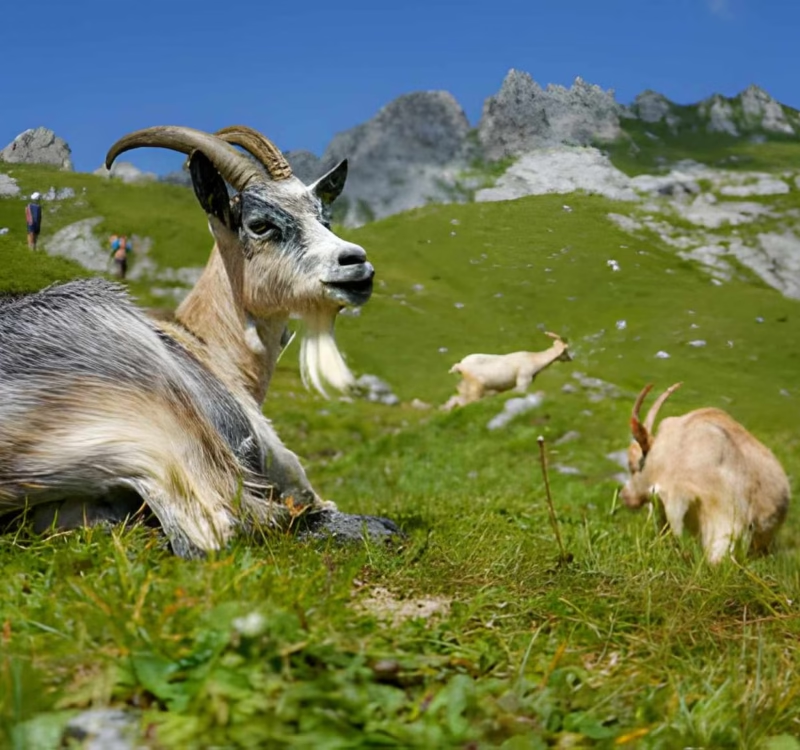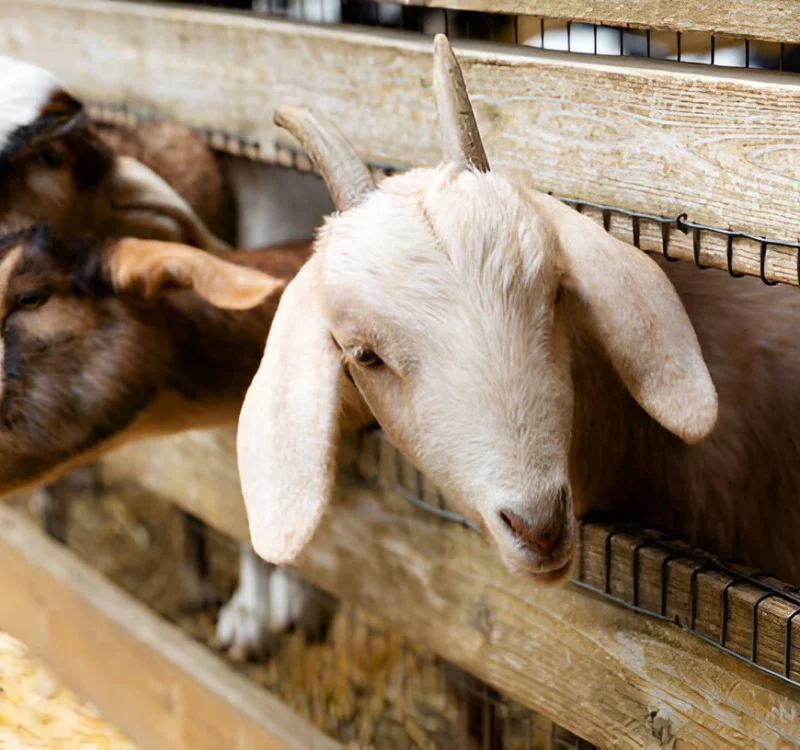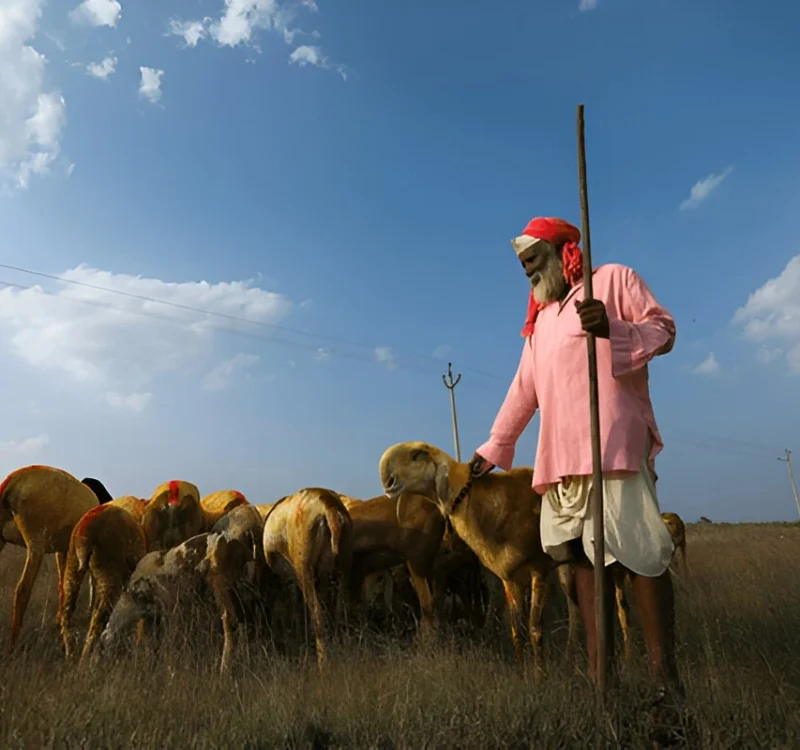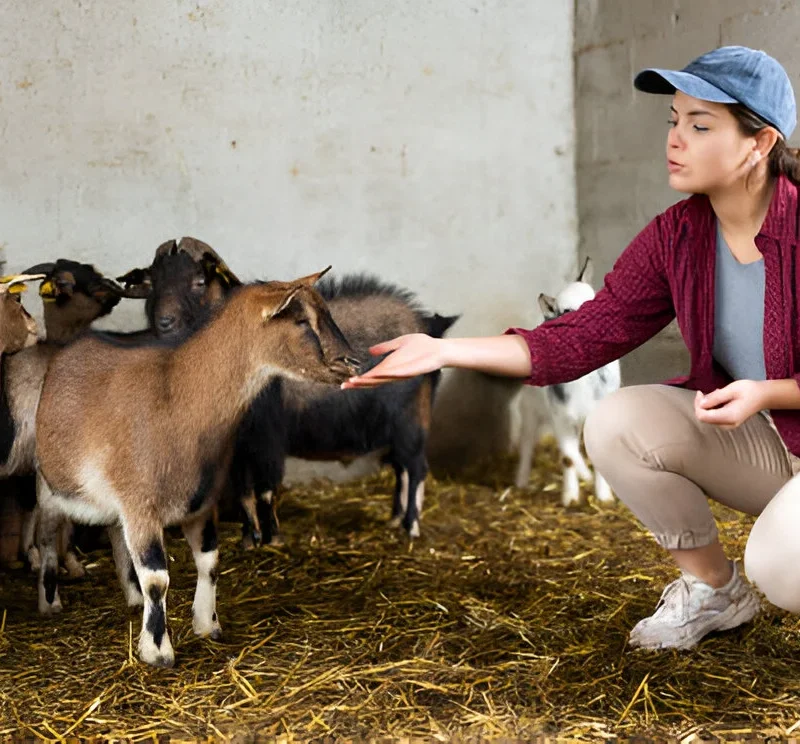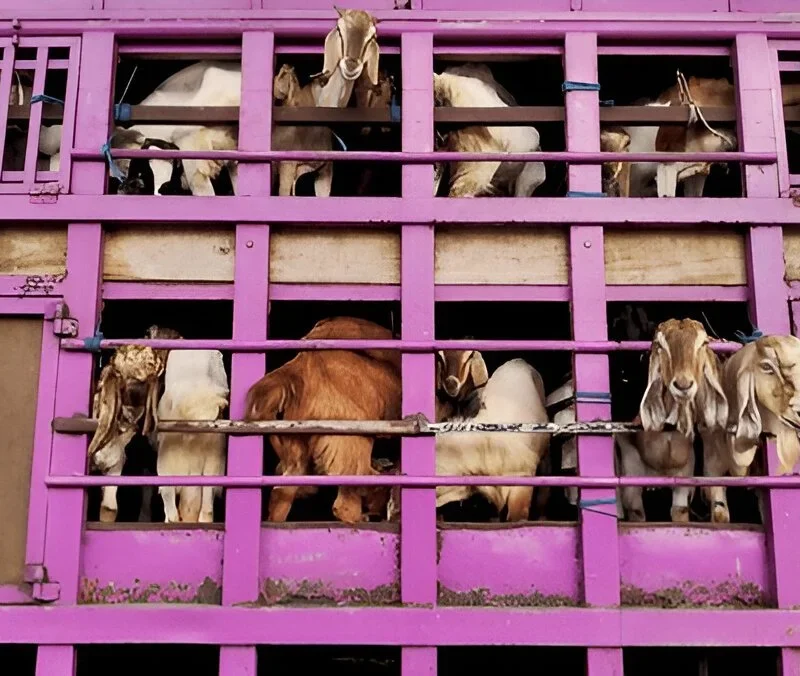No products in the cart.
Goat farming is becoming increasingly popular due to its profitability and the versatility of goats in various agricultural ventures. Whether you’re a hobby farmer, an aspiring agri-entrepreneur, or a livestock breeder, starting a goat farm can be a rewarding experience. However, like any business venture, it requires careful planning and execution.
In this guide, we’ll provide you with all the necessary information to start your goat farm with the right space, infrastructure, and feeding strategies. By the end of this article, you’ll have a clear roadmap for starting your goat farm and achieving success in this thriving industry.
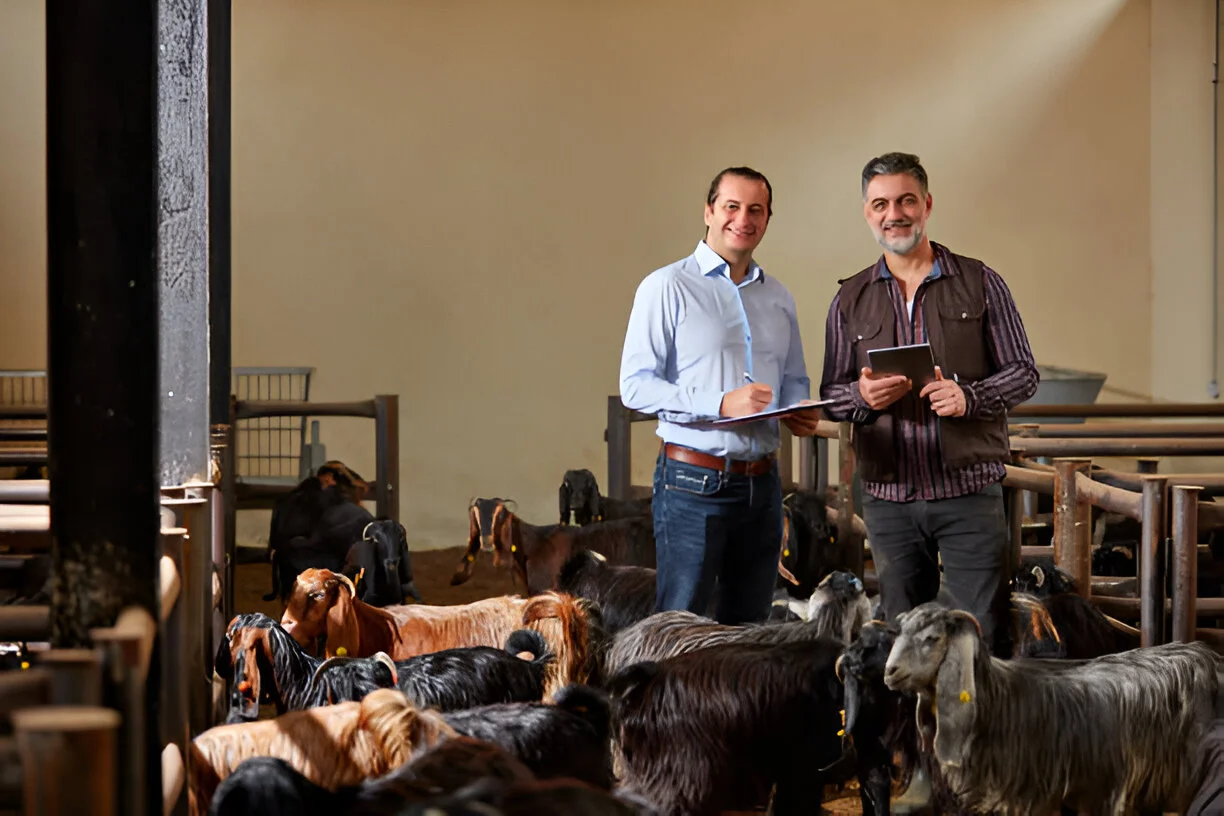
Space Requirements for Your Goat Farm
When planning the space for your goat farm, consider several key factors that will directly impact the health and productivity of your goats.
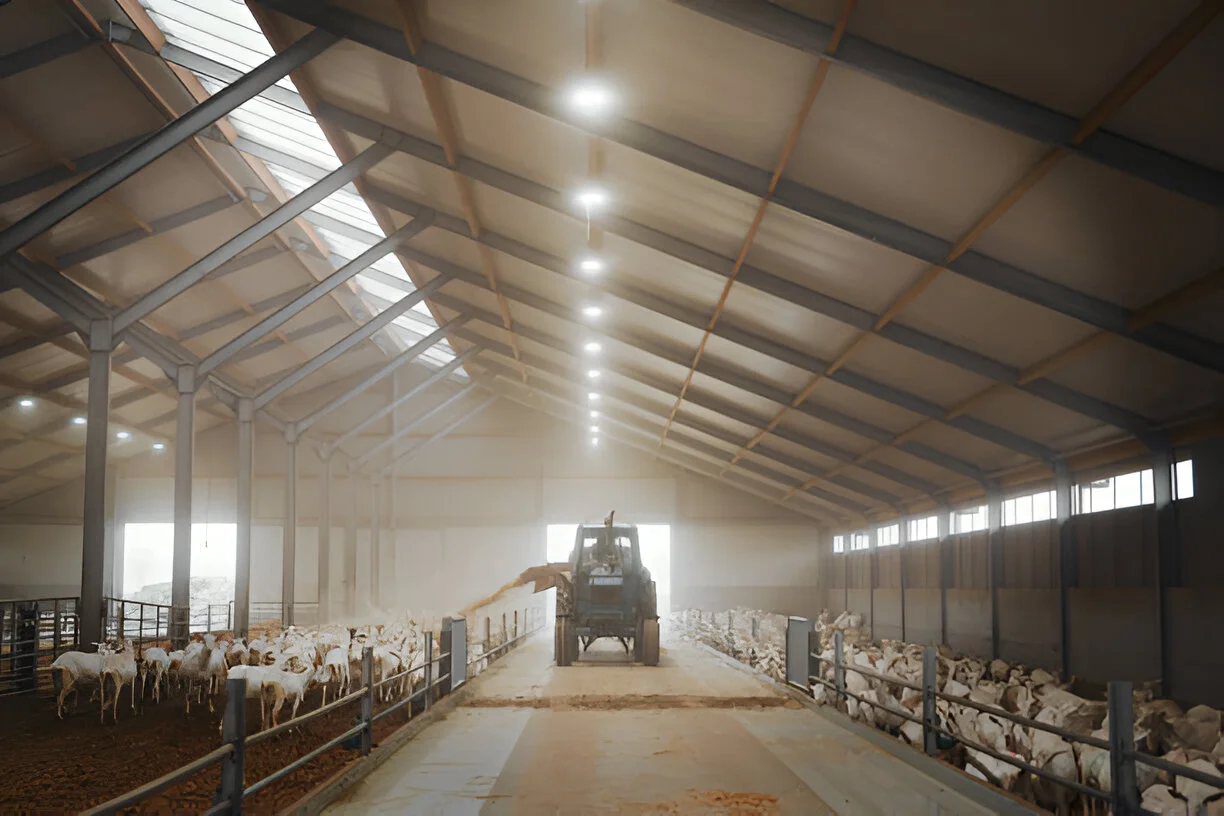
1. Ideal Space per Goat
Each goat needs enough space to roam, exercise, and graze. A general rule of thumb is to allow 150 to 200 square feet per adult goat, which ensures they have ample room to move around without overcrowding.
- Indoor space: A goat barn or shelter should provide enough room for all your goats, allowing for resting, feeding, and protection from extreme weather conditions.
- Outdoor space: Goats are naturally curious and need access to open pasture. If you’re raising 10 goats, you’ll need around 1 to 2 acres of grazing land to ensure they have enough space to roam freely.
2. Fencing and Security
Goats are excellent escape artists, so a sturdy fence is essential. Use high-quality wire or electric fences that are at least 4 to 5 feet tall to prevent your goats from escaping.
- Recommended Fencing Materials: Woven wire, electric fencing, or a combination of both for additional security.
- Gates: Ensure the gates are strong and securely fastened to keep predators and other animals out.
3. Climate Considerations
Goats are adaptable animals but are sensitive to extreme heat and cold. Therefore, climate plays a critical role in selecting the right location for your farm. Choose an area with a moderate climate or prepare your barn with proper ventilation and insulation to keep the goats comfortable year-round.
Building the Right Infrastructure
The infrastructure of your goat farm is crucial for the long-term success of your operation. This includes the shelter, storage facilities, and other essential structures needed for maintaining a productive farm.
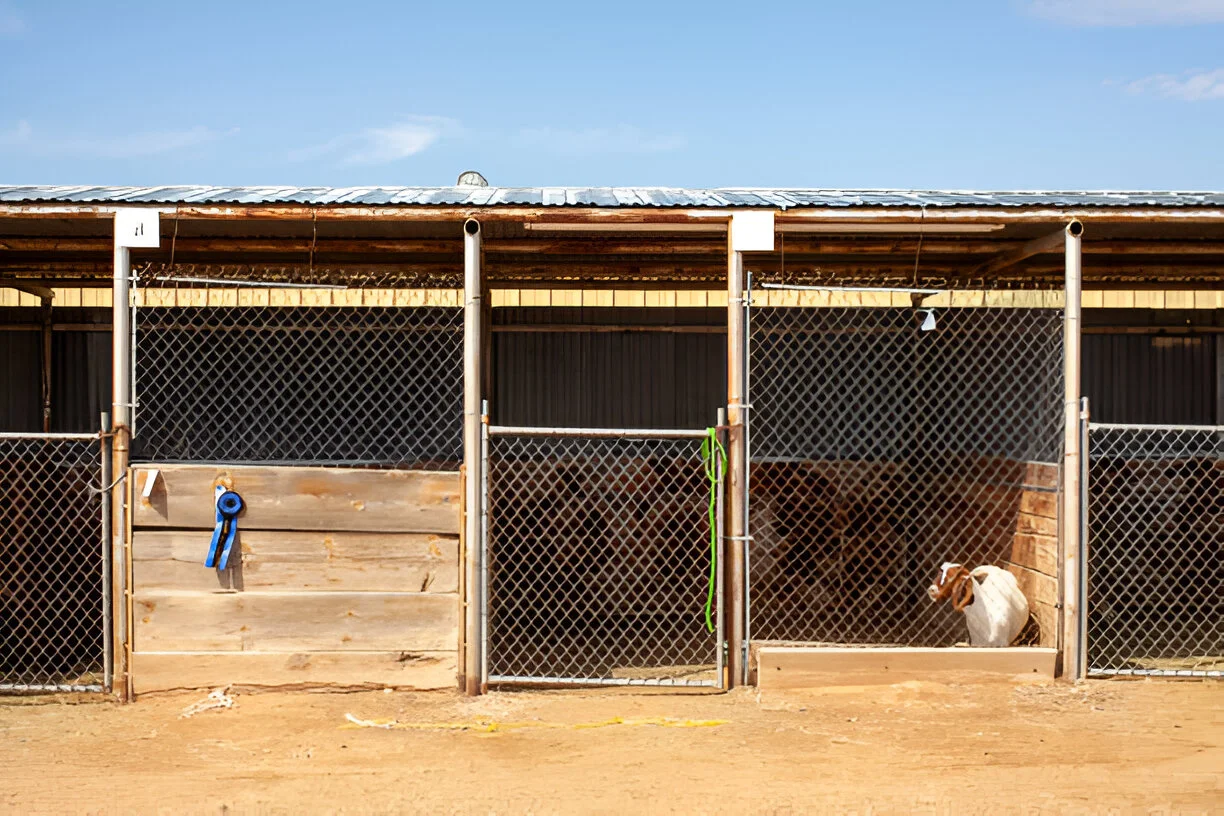
1. Goat Shelter or Barn
A well-constructed barn is essential for protecting your goats from harsh weather conditions, particularly in colder climates. The barn should provide enough space for your goats to rest, eat, and stay dry.
- Ventilation: Ensure there is proper airflow in the barn to prevent respiratory issues.
- Flooring: Avoid hard floors like concrete. Use straw, wood shavings, or rubber mats to provide a comfortable surface for your goats to walk on.
2. Feeding and Watering Systems
Goats require constant access to fresh water and a well-balanced diet. It’s essential to have an efficient system for feeding and watering your goats.
- Watering System: Install automatic waterers or ensure you have enough water buckets that are regularly refilled.
- Feeding Stations: Have multiple feeding stations in your barn to reduce competition between goats.
3. Waste Management
Efficient waste management is crucial for maintaining a clean and healthy environment for your goats. Consider installing a composting system to manage manure and other waste materials effectively.
- Manure Management: Manure can be used as fertilizer for crops or sold to other farmers.
- Cleaning Equipment: Invest in cleaning tools like rakes and wheelbarrows to maintain cleanliness in your barn and grazing area.
Feeding Guide for Goats: Essential Nutritional Needs
Providing your goats with the right nutrition is vital for their health and productivity. Below, we will cover the essential elements of goat feeding, from roughage to supplements.
1. Roughage and Forage
Goats are herbivores, and their primary food source should be roughage like hay, grasses, and shrubs. Depending on the breed and the climate, they can graze on a variety of plants.
- Types of Forage: Alfalfa, clover, and timothy hay are popular choices. Make sure to provide access to fresh pasture for grazing.
- Hay Storage: Store hay in a dry, cool place to prevent it from molding.
2. Concentrates and Grains
While goats primarily eat roughage, they may also need concentrates such as grains, especially if they are pregnant or lactating.
- Grain Feed: Offer grains like oats or corn, but in moderation, to avoid obesity or digestive issues.
- Minerals and Supplements: Goats need access to minerals, especially calcium and phosphorus. Provide a mineral supplement to ensure they stay healthy.
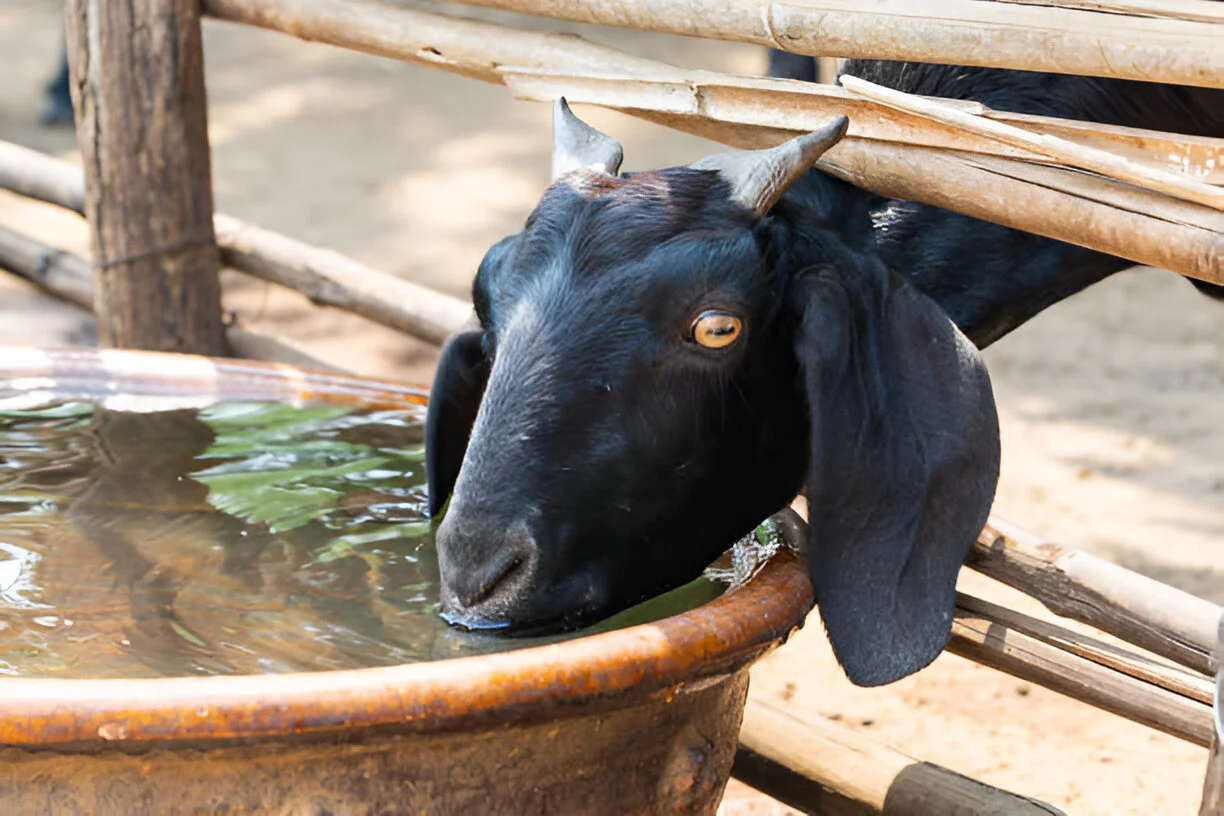
3. Freshwater Access
Goats need constant access to clean, fresh water. Dehydration can lead to serious health issues, so ensure that your goats are drinking enough water every day.
- Water Sources: Invest in automatic waterers or large water containers that can hold several gallons.
4. Breed-Specific Feeding Requirements
Different goat breeds have varying nutritional needs based on size, purpose, and activity level. Here are some examples:
- Dairy Goats (e.g., Beetal, Saanen, Alpine): These goats require more protein and energy, especially during lactation.
- Meat Goats (e.g., Boer, Kiko): Focus on a high-energy diet for muscle development.
- Fiber Goats (e.g., Cashmere, Angora): Provide a well-balanced diet with enough fiber to maintain coat quality.
Goat Breeds to Consider for Your Goat Farm
When selecting goats for your farm, it’s important to choose breeds that suit your goals, whether it’s for milk, meat, or fiber production. Here are some popular goat breeds to consider:
- Beetal Goats: Beetal goats are highly valued for their exceptional milk and meat production capabilities. Known for their robust immune system, Beetal goats thrive in various farming conditions, making them an ideal choice for both dairy and meat production.
- African Boer Goats: Ideal for meat production, Boer goats are large and have a high growth rate.
- Saanen Goats: Known for their high milk production, Saanens are among the best dairy goats.
- Alpine Goats: A hardy breed that thrives in cooler climates, Alpine goats are also good milk producers.
- Anglo-Nubian Goats: Popular for their dual-purpose use, Anglo-Nubians provide both milk and meat.
- Jamunapari Goats: A high-yield milk-producing breed from India, Jamunapari goats are known for their large size and excellent milk quality.
Ongoing Care and Management for a Successful Goat Farm
While planning and building your farm are important steps, ongoing care and management are crucial for your goats’ well-being.
- Health Monitoring: Regularly check for signs of illness, such as coughing, lethargy, or loss of appetite. Consult a vet if needed.
- Breeding: If you plan to breed goats, make sure to understand the reproductive cycle and the optimal conditions for mating.
- Record-Keeping: Maintain detailed records of your goats’ health, breeding history, and production.
Maximizing Profitability in Goat Farming
By focusing on the right space, infrastructure, and feeding strategies, you can maximize the profitability of your goat farm. In addition to providing milk, meat, or fiber, goat farming can also be a source of income through selling goats, manure, or other products.
Start Your Goat Farm Today
Starting a goat farm requires careful planning, but with the right approach, you can build a sustainable and profitable business. Whether you’re raising goats for dairy, meat, or fiber, this guide provides the foundational knowledge needed to get started.
Trusted External Sources to Explore for Goat Farming
Related posts
Posted on: January 4, 2026
Alpine Goat Breed Complete Guide: Characteristics, Milk Production & Dairy Farm Care in India
Posted on: May 24, 2025
🐐 Why Choosing the Right Goat Breed Matters in India
Posted on: April 5, 2025
Beetal Goat Farming Success: Profitable Strategies for Rural India
Posted on: March 25, 2025
Goat Growth Time: How Long Does it Take for Beetal, Alpine & Saanen Goats to Mature?
Posted on: March 22, 2025


